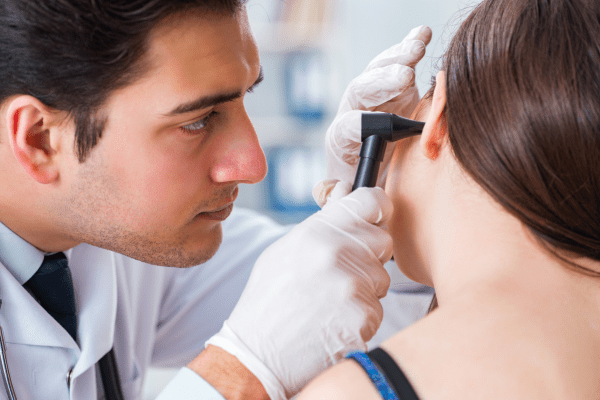Ear Examination
Ear Examination
Welcome to the informative guide on ear examination brought to you by Dr Mihir Mehta, your trusted ENT Specialist. A thorough understanding of ear examination is essential to address a wide range of ear-related concerns. This 500-word guide will walk you through the importance, procedure, and what to expect during an ear examination.
The Importance Of Ear Examination
Regular ear examinations are crucial for maintaining optimal ear health. They serve several essential purposes:
1. Hearing Assessment: Ear exams help in evaluating your hearing ability, ensuring early detection of hearing loss or other auditory issues.
2. Infection Detection: They are a primary method for identifying ear infections, which, if left untreated, can lead to complications.
3. Earwax Management: An ear examination can determine whether earwax is impacting your hearing or causing discomfort.
4. Diagnosis of Ear Conditions: It’s a critical diagnostic tool for identifying conditions such as otitis media, tinnitus, and more.
The Ear Examination Procedure
An ear examination is a straightforward and non-invasive procedure, typically consisting of the following steps:
- Medical History: Your doctor will begin by discussing your medical history, including any previous ear issues, hearing difficulties, or related symptoms.
- Visual Inspection: Using an otoscope, the doctor will visually inspect your ear canal and eardrum. This allows them to identify any visible abnormalities, such as infection, earwax buildup, or structural issues.
- Tympanometry: In cases of suspected middle ear issues, a tympanometry test may be performed. It assesses the mobility of the eardrum to evaluate its function.
- Audiometry: If hearing loss is a concern, your doctor may conduct an audiometry test. This involves listening to a series of tones through headphones and indicating when you hear them.
- Additional Tests: Based on your symptoms and the findings of the initial examination, additional tests, such as a CT scan or MRI, might be recommended.
What To Expect During An Ear Examination
It’s normal to feel a bit anxious before an ear examination, especially if you’re experiencing discomfort or hearing problems. Here’s what to expect:
- Painless Procedure: Ear examinations are generally painless. You may feel some pressure or a slight discomfort when the otoscope is inserted into your ear, but it shouldn’t be painful.
- Discussion: Your doctor will discuss their findings with you, explaining any issues or conditions they may have identified.
- Treatment Options: If a problem is discovered, your doctor will discuss treatment options, which may include medication, removal of earwax, or further tests.
- Questions: Feel free to ask questions about your ear health and any concerns you may have. Your ENT specialist is there to help and provide guidance.

